L-689,560
- CAS NO.:139051-78-8
- Empirical Formula: C17H15Cl2N3O3
- Molecular Weight: 380.23
- MDL number: MFCD00672670
- SAFETY DATA SHEET (SDS)
- Update Date: 2025-12-03 18:03:33
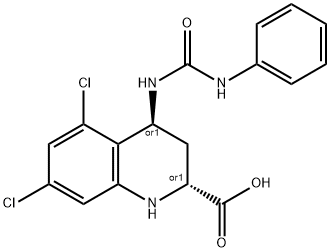
What is L-689,560?
The Uses of L-689,560
L-689,560 is a potent antagonist at the glycine-NMDA receptor site.
What are the applications of Application
L-689,560 is a potent antagonist at the glycine-NMDA receptor site
Definition
ChEBI: 4-[[anilino(oxo)methyl]amino]-5,7-dichloro-1,2,3,4-tetrahydroquinoline-2-carboxylic acid is a member of quinolines.
Biological Activity
Very potent antagonist at the glycine-NMDA site. Also available as part of the NMDA Receptor - Glycine Site Tocriset™ .
in vitro
l-689560 is described as one of the most potent nmda antagonists and [4'-3h]-l-689560 has been thought to be a highly specific radioligand for the glycine site. in consistent with the 5,7-disubstituted kynurenates, the tetrahydroquinolines are selective antagonists of glycine site nmda, l-689560 exhibiting at least 3 orders of magnitude selectivity versus the glutamate site [1].
in vivo
mdl100748 with an ed50 of 83 mg kg-1 can prevent audiogenic seizures in susceptible mice after systemic injection. as a standard l689560, its subsequent analogues have been compared; the displacement of [3h] l689560 has often been used to displace that of [3h] glycine as an alternative assay. l701252, a quinones (the retention of a keto grouping at position 3), has been against l689560 binding (ic50 of 420 nm) and against seizures (ed50 of 4.1 mg kg-1) in dba/2 mice. a group of sulfonamide analogues of kynurenic acid are also in active among the 2-quinolone series. those of a series of 3,4-dihydroquinolones and tetrahydroquinolines with a nitrosubstituent at 3-position were selective antagonists at the nmda receptor glycine site if they bore a bulky grouping in the position 4. the compound with no substitution at position 4 was proved to be one of the most effective broad-spectrum antagonists against nmda and ampa receptors [2].
Storage
Store at RT
References
[1]. leeson pd, carling rw, moore kw, moseley am, smith jd, stevenson g, chan t, baker r, foster ac, grimwood s, et al. 4-amido-2-carboxytetrahydroquinolines. structure-activity relationships for antagonism at the glycine site of the nmda receptor. j med chem. 1992 may 29;35 (11): 1954-68.
[2]. stone tw. development and therapeutic potential of kynurenic acid and kynurenine derivatives for neuroprotection. trends pharmacol sci. 2000 apr; 21(4):149-54.
Properties of L-689,560
| Melting point: | 172-173°C |
| Boiling point: | 549.1±50.0 °C(Predicted) |
| Density | 1.51±0.1 g/cm3(Predicted) |
| storage temp. | Store at RT |
| solubility | <9.51mg/ml in DMSO; <38.02mg/ml in ethanol |
| form | solid |
| pka | 11.16±0.20(Predicted) |
| color | White |
Safety information for L-689,560
Computed Descriptors for L-689,560
New Products
4,4-Difluoropiperidine hydrochloride tert-butyl 9-methoxy-3-azaspiro[5.5]undecane-3-carboxylate Indole Methyl Resin N-Isopropylurea N,N-Dicyclohexylcarbodiimide(DCC) MELDRUMS ACID 5-METHYLISOXAZOLE-4-CARBOXYLIC ACID Magnessium Bis glycinate Zinc ascorbate 1-bromo-2-butyne 2-acetamidophenol 9(10H)-anthracenone Erythrosin B, 4-Piperidinopiperidine 2-((4-morpholinophenylamino) (methylthio) methylene) malononitrile 2,4-dihydroxybenzaldehyde 3-(4-morpholinophenylamino)-5-amino-1H-pyrazole-4-carbonitrile Methyl 2-methylquinoline-6-carboxylate 2,6-dichloro-4-nitropyridine 4-Bromo-2-chlorobenzonitrile 2-(benzylamino)acetic acid hydrochloride 4-(tert-Butoxycarbonylamino)but- 2-ynoic acid 3,4-dihydro-2H-benzo[b][1,4]dioxepine 1-Phenyl-1-cycloprppanecarboxylicacidRelated products of tetrahydrofuran
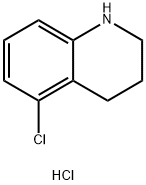

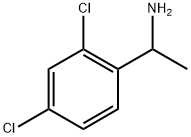
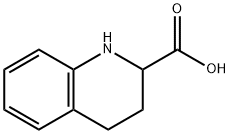

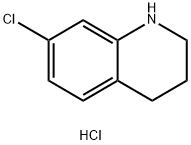
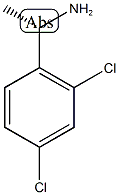
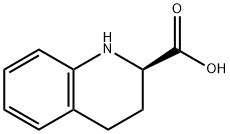
You may like
-
 3-(4-amino-1-oxoisoindolin-2-yl)-1-methylpiperidine-2,6-dione 98%View Details
3-(4-amino-1-oxoisoindolin-2-yl)-1-methylpiperidine-2,6-dione 98%View Details -
 1-methylindoline-2,3-dione 98%View Details
1-methylindoline-2,3-dione 98%View Details
2058-74-4 -
 614-19-7 98%View Details
614-19-7 98%View Details
614-19-7 -
 3112-85-4 Methyl phenyl sulfone 98%View Details
3112-85-4 Methyl phenyl sulfone 98%View Details
3112-85-4 -
 20677-73-0 (2,2-diethoxyethyl)methylamine 98%View Details
20677-73-0 (2,2-diethoxyethyl)methylamine 98%View Details
20677-73-0 -
 3-(4-(hydroxyamino)-1-oxoisoindolin-2-yl)piperidine-2,6-dione 98%View Details
3-(4-(hydroxyamino)-1-oxoisoindolin-2-yl)piperidine-2,6-dione 98%View Details -
 57381-49-4 2-bromo-4-chlorobenzonitrile 98%View Details
57381-49-4 2-bromo-4-chlorobenzonitrile 98%View Details
57381-49-4 -
 4,6-dichloropyrimidine-5-carbaldehyde 98%View Details
4,6-dichloropyrimidine-5-carbaldehyde 98%View Details
5305-40-8
